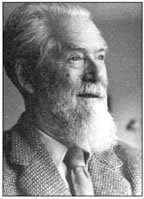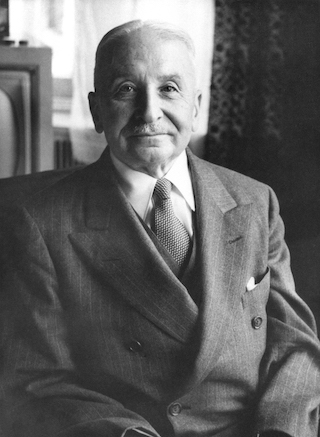If you interview a successful person, there will come a point in which they will identify a key moment in their lives that changed everything. It could be the decision to start a business; to try again after bankruptcy, a serious illness or injury; a move to a new place; a resolution to transform a difficult set of circumstances, or a commitment to a process of self education or a training program.
What all these moments have in common is that they are actions. Thinking about something, in itself, changes nothing. We all know this from our own lives!
Most people do not need convincing of this, (even if in their own lives there are actions they know they ought to take but lack the motivation to do so!)
At the same time there remains in our culture, and particularly in our universities, a strong belief that the ‘life of the mind’ is somehow superior to a ‘life of action’. From Plato onwards there has been a suspicion against the everyday life of the world and a belief that a purely intellectual life is a higher, better calling.
For this, intellectualising mindset, a thousand biographies of successful people would carry no weight: each could be dismissed as being ‘only about’ business, or sport, or politics, or celebrity or philanthropy.
We saw in The Problem of Knowledge the difficulty of arguing from common sense, as it is easy to find examples where ‘common sense’ turns out to be wrong.
So is it possible to give a convincing intellectual argument why action matters more than thought? It is time to revisit Descartes.
When Descartes searched for something he could be certain of, he concluded with his famous ‘cogito’. He was certain that he was thinking. From there, he deduced the existence of an external world, other people and everything else.
Many philosophers since then have challenged his certainty about just about everything, and it gives rise to many seemingly irresolvable philosophical problems. How can you be certain there is an external world? How can you be sure you are not just a ‘brain in a vat’?
Yet in all this time the ‘cogito’ itself has not faced any serious challenge. I have not heard of philosophers who challenge the idea that there is such a thing as thinking. (If there was no thinking there could be no philosophy!)
In the 20C two very different thinkers, starting from very different places, revisited Descartes’ ‘cogito’ and quite separately came to the conclusion that there is a much better starting point for making sense of the life we find ourselves in.

In many ways the Scottish Philosopher John Macmurray (1891-1976) was a man out of his time. You could say he had a very ‘old fashioned’ approach to his subject. He read all the great philosophers deeply and pondered about the questions that were left unanswered. He had an old fashioned sense that the purpose of philosophy was to help provide meaning and clarity to the great issues of life.
Macmurray was never part of a group and did not found a school. For a while his books sold in large numbers and he was taken seriously by psychologists, artists, theologians and loved by his students in London and Edinburgh. He was a popular broadcaster on the radio in the 1930s but in spite of this, or perhaps partly because of this, he suffered withering neglect from other philosophers.
Macmurray grappled with the deeper questions bequeathed by previous generations and in particular the insoluble problems left by Descartes’ ‘cogito’. He came up with an ingenious solution which, in my view, has been unfairly neglected.
We can be as sure that we act in the world as we are that we think. It makes a far better starting point for exploring the world and understanding life.
If you deny this, your denial is a form of action. You are interacting with me to claim that I am wrong.
In other words, even your denial proves this to be right. Human action is an axiom, a starting point from which to build. It is as true a starting point as the Cogito, and far more useful.
Actio, ergo sum
I act, therefore I am
Human beings should not be called ‘Homo Sapiens’ ‘wise person’ (if only!), but
Homo Agens
Acting person, or person who takes action
The starting point is that you are an acting being already in a world with which you interact.
We can be sure that we think in three different ways and sure that we act. The two are inseparable: actions are behaviours that are informed by thinking. Macmurray set out this idea in his 1954 work, based on his Gifford lectures, The Self as Agent.

Quite separately, and I believe unknown to Macmurray, the brilliant economist and philosopher Ludwig Von Mises (1881 -1973) also took human action rather than thinking as the starting point for understanding the ‘human sciences’.
Like Macmurray, Mises was a man out of his time. His biographer Jörg Guido Hülsmann described him as ‘the Last Knight of Liberalism’. He grew up in Lemburg, in what was then the Austro-Hungarian Empire (later called Lwow and part of Poland and now part of Ukraine and named Lviv).
At a time when Classical Liberal ideas were being set aside in favour of the Collectivist ideas of Socialism and Fascism, Mises taught Economics in Vienna until he had to flee for his life from the Nazis.
Mises published his monumental Human Action in English in 1949 . Although he does not dialogue with Descartes the way Macmurray does, Mises describes in detail how human action is the starting point, the one thing we can be certain of. Humans act: they make choices. These can either be in conditions of freedom or under coercion.
As far as I know no one has ever examined how two very different thinkers came to the same conclusions from two very different starting points.

